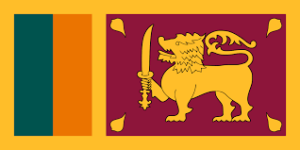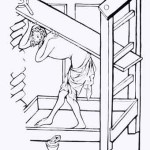The Left Wins Presidential Election In Sri Lanka
No Comments yet 09-25-2024 ~ On September 22, 2024, the Sri Lankan election authority announced that Anura Kumara Dissanayake of the Janatha Vimukthi Peramuna (JVP)-led National People’s Power (NPP) alliance won the presidential election. Dissanayake, who has been the leader of the left-wing JVP since 2014, defeated 37 other candidates, including the incumbent president Ranil Wickremesinghe of the United National Party (UNP) and his closest challenger Sajith Premadasa of the Samagi Jana Balawegaya. The traditional parties that dominated Sri Lankan politics—such as the Sri Lanka Podujana Peramuna (SLPP) and the UNP—are now on the back foot. However, they dominate the Sri Lankan Parliament (the SLPP has 145 out of 225 seats, while the UNP has one seat). Dissanayake’s JVP only has three seats in the Parliament.
09-25-2024 ~ On September 22, 2024, the Sri Lankan election authority announced that Anura Kumara Dissanayake of the Janatha Vimukthi Peramuna (JVP)-led National People’s Power (NPP) alliance won the presidential election. Dissanayake, who has been the leader of the left-wing JVP since 2014, defeated 37 other candidates, including the incumbent president Ranil Wickremesinghe of the United National Party (UNP) and his closest challenger Sajith Premadasa of the Samagi Jana Balawegaya. The traditional parties that dominated Sri Lankan politics—such as the Sri Lanka Podujana Peramuna (SLPP) and the UNP—are now on the back foot. However, they dominate the Sri Lankan Parliament (the SLPP has 145 out of 225 seats, while the UNP has one seat). Dissanayake’s JVP only has three seats in the Parliament.
Dissanayake’s triumph to become the country’s ninth president is significant. It is the first time that a party from the country’s Marxist tradition has won a presidential election. Dissanayake, born in 1968 and known by his initials of AKD, comes from a working-class background in north-central Sri Lanka, far from the capital city of Colombo. His worldview has been shaped by his leadership of Sri Lanka’s student movement, and by his role as a cadre in the JVP. In 2004, Dissanayake went to Parliament when the JVP entered an alliance with Chandrika Kumaratunga, the president of the country from 1994 to 2005 and the daughter of the first female prime minister in the world (Sirimavo Bandaranaike). Dissanayake became the Minister of Agriculture, Land, and Livestock in Kumaratunga’s cabinet, a position that allowed him to display his competence as an administrator and to engage the public in a debate around agrarian reform (which will likely be an issue he will take up as president). An attempt at the presidency in 2019 ended unsuccessfully, but it did not stop either Dissanayake or the NPP.
Economic Turbulence
In 2022, Colombo—Sri Lanka’s capital city—was convulsed by the Aragalaya(protests) that culminated in a takeover of the presidential palace and the hasty departure of President Gotabaya Rajapaksa. What motivated these protests was the rapid decline of economic possibilities for the population, which faced shortages of essential goods, including food, fuel, and medicines. Sri Lanka defaulted on its foreign debt and went into bankruptcy. Rather than generate an outcome that would satisfy the protests, Wickremesinghe, with his neoliberal and pro-Western orientation, seized the presidency to complete Rajapaksa’s six-year term that began in 2019.
Wickremesinghe’s lame duck presidency did not address any of the underlying issues of the protests. He took Sri Lanka to the International Monetary Fund (IMF) in 2023 to secure a $2.9 billion bailout (the 17th such intervention in Sri Lanka from the IMF since 1965), which came with removal of subsidies for items such as electricity and a doubled value-added tax rate to 18 percent: the price of the debt was to be paid by the working class in Sri Lanka and not the external lenders. Dissanayake has said that he would like to reverse this equation, renegotiate the terms of the deal, put more of the pain on external lenders, increase the income tax-free threshold, and exempt several essential goods (food and health care) from the increased taxation regime. If Dissanayake can do this, and if he earnestly intervenes to stifle institutional corruption, he will make a serious mark on Sri Lankan politics which has suffered from the ugliness of the civil war and from the betrayals of the political elite.
A Marxist Party in the President’s House
The JVP or the People’s Liberation Front was founded in 1965 as a Marxist-Leninist revolutionary party. Led by Rohana Wijeweera (1943-1989), the party attempted two armed insurrections—in 1971 and again from 1987 to 1989—against what it perceived as an unjust, corrupt, and intractable system. Both uprisings were brutally suppressed, leading to thousands of deaths, including the assassination of Wijeweera. After 1989, the JVP renounced the armed struggle and entered the democratic political arena. The leader of the JVP before Dissanayake was Somawansa Amerasinghe (1943-2016), who rebuilt the party after its major leaders had been killed in the late 1980s. Dissanayake took forward the agenda of building a left-wing political party that advocated for socialist policies in the electoral and social arenas. The remarkable growth of the JVP is a result of the work of Dissanayake’s generation, who are 20 years younger than the founders and who have been able to anchor the ideology of the JVP in large sections of the Sri Lankan working class, peasantry, and poor. Questions remain about the party’s relationship with the Tamil minority population given the tendency of some of its leaders to slip into Sinhala nationalism (particularly when it came to how the state should deal with the insurgency led by the Liberation Tigers of Tamil Eelam). Dissanayake’s personal rise has come because of his integrity, which stands in stark contrast to the corruption and nepotism of the country’s elite, and because he has not wanted to define Sri Lankan politics around ethnic division.
Part of the refoundation of the JVP has been the rejection of left-wing sectarianism. The party worked to build the National People’s Power coalition of twenty-one left and center-left groups, whose shared agenda is to confront corruption and the IMF policy of debt and austerity for the mass of the Sri Lankan people. Despite the deep differences among some of the formations in the NPP, there has been a commitment to a common minimum program of politics and policy. That program is rooted in an economic model that prioritizes self-sufficiency, industrialization, and agrarian reform. The JVP, as the leading force in the NPP, has pushed for the nationalization of certain sectors (particularly utilities, such as energy provision) and the redistribution of wealth through progressive taxation and increased social expenditure. The message of economic sovereignty struck a chord amongst people who have long been divided along lines of ethnicity.
Whether Dissanayake will be able to deliver on this program of economic sovereignty is to be seen. However, his victory has certainly encouraged a new generation to breathe again, to feel that their country can go beyond the tired IMF agenda and attempt to build a Sri Lankan project that could become a model for other countries in the Global South.
By Atul Chandra and Vijay Prashad
Author Bio: This article was produced by Globetrotter.
Atul Chandra works at Tricontinental Research Services (New Delhi).
Vijay Prashad is an Indian historian, editor, and journalist. He is a writing fellow and chief correspondent at Globetrotter. He is an editor of LeftWord Books and the director of Tricontinental: Institute for Social Research. He has written more than 20 books, including The Darker Nations and The Poorer Nations. His latest books are Struggle Makes Us Human: Learning from Movements for Socialism and (with Noam Chomsky) The Withdrawal: Iraq, Libya, Afghanistan, and the Fragility of U.S. Power.
Source: Globetrotter
You May Also Like
Comments
Leave a Reply







